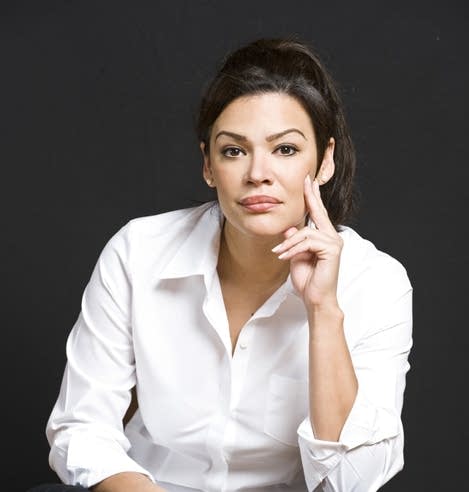Penumbra to host Ferguson dialogue

Penumbra Theatre will open up its space Wednesday night for a conversation about the killing of Michael Brown and ensuing turmoil in Ferguson, Missouri. The dialogue will also examine the fact that the protests over Michael Brown's death and police violence in general are taking place fifty years after "freedom summer."

I asked Co-Artistic Director Sarah Bellamy to answer a few questions about the upcoming event. Here's our exchange:
1. Why is Penumbra hosting this event?
This is an emotionally charged topic and an emotionally charged time and I think people are hungry to talk. Penumbra has always been a safe space for community members to engage in challenging and compassionate conversations around issues of race and racism. Last month, our nation celebrated the 50th anniversary of Freedom Summer -- a period of concentrated activism that brought together religious leaders, community members, and students in a civil rights campaign that was organized by a coalition of SNCC, CORE, NAACP and SCLC. The events in Ferguson, Missouri, have made it crystal clear that we are not living in a post-racial moment, that in fact we may not be as far along in the civil rights struggle as we thought. It prompts us to take inventory of where we are, how far we’ve come, and how far we have yet to go.
Create a More Connected Minnesota
MPR News is your trusted resource for the news you need. With your support, MPR News brings accessible, courageous journalism and authentic conversation to everyone - free of paywalls and barriers. Your gift makes a difference.
2. I notice you’ve included two summer institute students in the panel discussion. Why?
The students are joining us to share monologues that they have written after experiencing racial profiling and to express their concern about the criminal justice system. All over the country black youth, especially young men, are in danger of being profiled and are facing daunting statistics about everything from traffic stops to prison sentences. It’s important to us that our patrons have an opportunity to hear directly from youth about these issues. We train young artists to combat inequity using the arts. I think having teens participate in the event is a good reminder about who is most vulnerable to racism and the severity of the price they pay.
3. Why did you choose not to include police officers on the panel?
There are plenty of law enforcement officials who are devastated about what happened in Ferguson. They know it threatens the trust that makes it possible for them to stay safe and to do their jobs well. I chose not to have police officers on the panel because I wanted to focus our conversation on spiritual healing, community organizing, and the power of art to impact social change. The people who I’ve invited represent some of the finest speakers I know on these topics.
I’ve been directing anyone interested in hearing directly from the police about this issue to the listening session Minneapolis Police Chief Janee Harteau is hosting on September 18.
4. What do you hope will come out of this panel discussion?
I’m hoping that everyone in the room feels held. What I mean by that is that we’ll open a space which can be scary, vulnerable, and even painful, but that the power of community and the contributions of the amazing panelists and artists will help heal some of what’s been hurt. I’m also hoping that people leave feeling more informed -- not necessarily about the Michael Brown case, as details are still emerging -- but about the history of racism in America which endangers everyone. It would be great if after the event attendees felt inspired to do something; everyone will be given a resource list and examples of five action steps they can take from a conversation with a family member to hosting a community dialogue of their own.
5. How can the arts support racial justice?
Change will require hard work from all sectors of society, but the arts have a vital role to play in racial justice efforts. The power of human empathy is immeasurable. The arts keep us in a space of gratitude, open-mindedness, and inspiration. We must be careful not to become desensitized to these issues and numb to the statistics; every time we hear about the premature and violent death of a child by gun violence, I want people to picture a child they know and care about so that we’re all compelled to do something to make our communities safer for everyone. Theater is a powerful vehicle to encourage empathy, to model responsible action, and to promote equity.
6. There have been increasing reports of police violence toward black men across the country. What do you think should be done locally about this issue?
I think that it begins with dialogue. I’m hoping that we’re playing a small part in that. I think that Chief Harteau's idea of holding community listening sessions is smart -- she's proactively trying to engage the community with the police. I also think it's important for communities to have conversations in places they feel safe, with people who make them feel safe, to address the deep fear, anger, and pain around what's happened. We need both.
"Let's Talk: Ferguson fifty years after Freedom Summer" begins at 6pm Wednesday night at Penumbra Theatre. The event is free and open to the public.